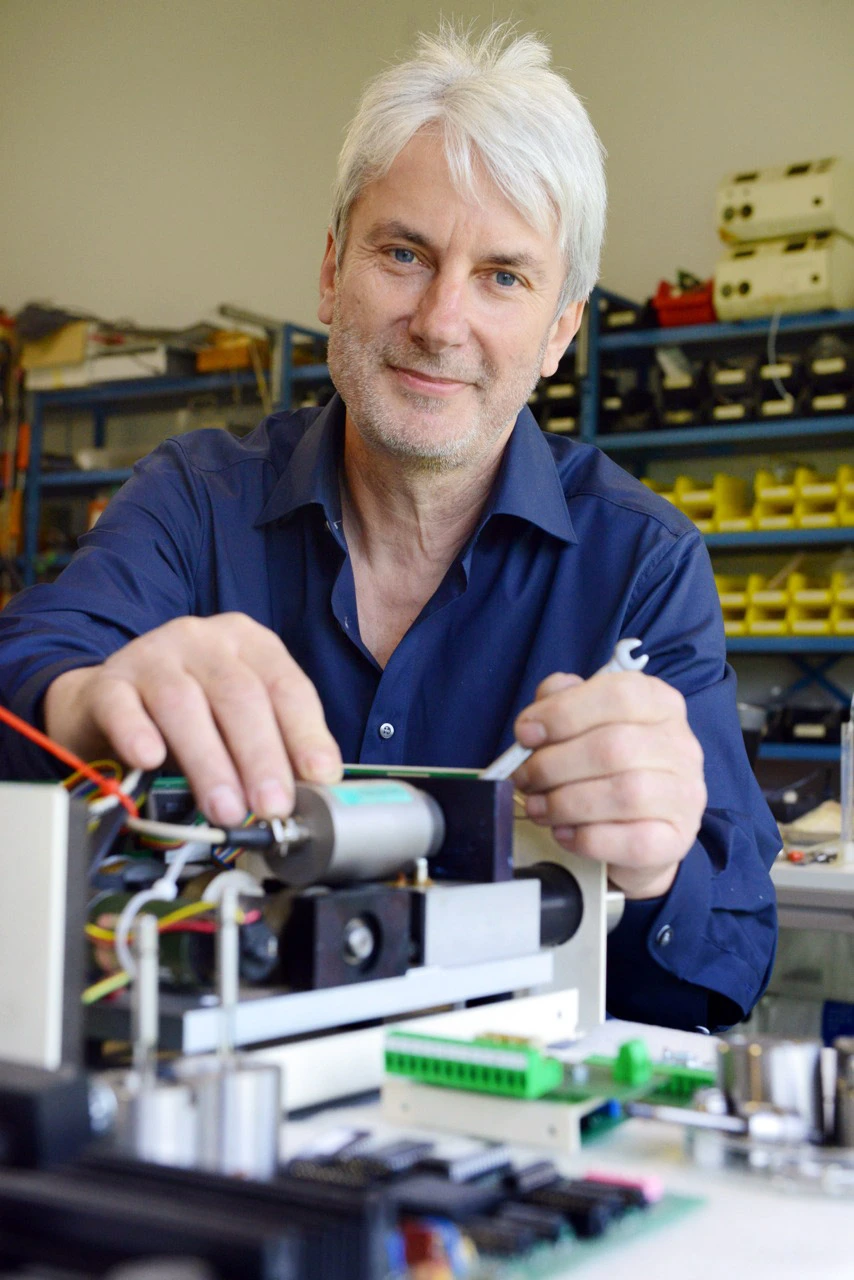Toolmakers for analytics
The essential work of scientific toolmakers in Adlershof
They don’t get research awards, and they don’t make the headlines. Yet the success of experiments and analyses is impossible without scientific toolmakers. Some of these companies are also refining their highly specialised – and coveted – products on the Adlershof Campus.
Olaf Schief has already seen a great many laboratories in Adlershof and spoken with researchers of every shade and colour. For over twenty years, his company W&P GEAT has been designing and assembling custom laboratories, guards against laser light and radioactivity, positioning frames for vacuum chambers, and much more besides. “Often, scientists come to us with ideas or drawings, and we help to realise them”, said Schief, who had been working in scientific toolmaking at the then Academy of Sciences before the German reunification. Today employing nine, he set up his company in 1994. “We do in fact see ourselves as the ‘little successor’ to the former Scientific Toolmaking Centre at the Academy”, he confided, not without pride.
Besides laboratory equipment, the company also supplies special pumps for chemical and biochemical research. These tiny, so called HPLC pumps (for high pressure liquid chromatography) must be robust: they often have to run continuously for days to extract substances or, for example, to determine their precise composition. Schief has even supplied researchers at the electron storage ring BESSY with tools for their experiments with water jets in vacuum. Schief and his staff also need creativity for orders from industry, e.g. equipment for automating production processes at an electroplating plant, or cutting tools for ultra thin glass. These special machines and devices are manufactured in the company’s own workshop and are now being delivered to companies and institutes throughout Germany.
Special equipment of quite another kind first sees the light of day in the Karlheinz Gutsche GmbH workshop covering 4,000 square metres in the north of the Science City. The workers at this family enterprise need good eyes and a steady hand: the miniscule lenses, some only half a millimetre in diameter, make coffee beans look like veritable giants. These optics are fitted in medical endoscopes that doctors use to probe, for instance, the gastrointestinal tract, nasal sinuses, or joints. “We supply components for the entire lens system in endoscopes”, said Dieter Menzel, for twenty years the Managing Director of Gutsche. This has been in business since 1959, and its customers include most of the renowned manufacturers of endoscopes. Last August, the company and its 120 staff relocated from its dispersed locations to Adlershof. Although the growing competition from the Far East sometimes gives Menzel quite a headache, he continues to rely on experience, efficient production – and committed staff. “We now have two apprentices, and we are pleased to receive applications.”
By Claudia Wessling for Adlershof Special
